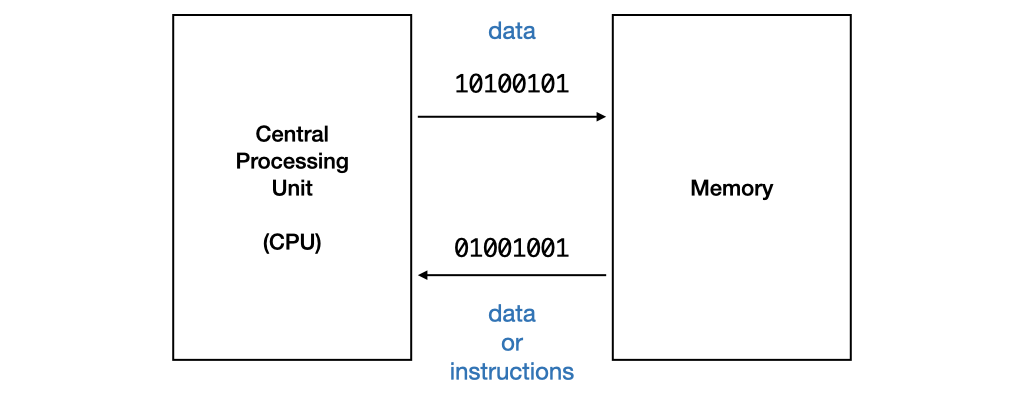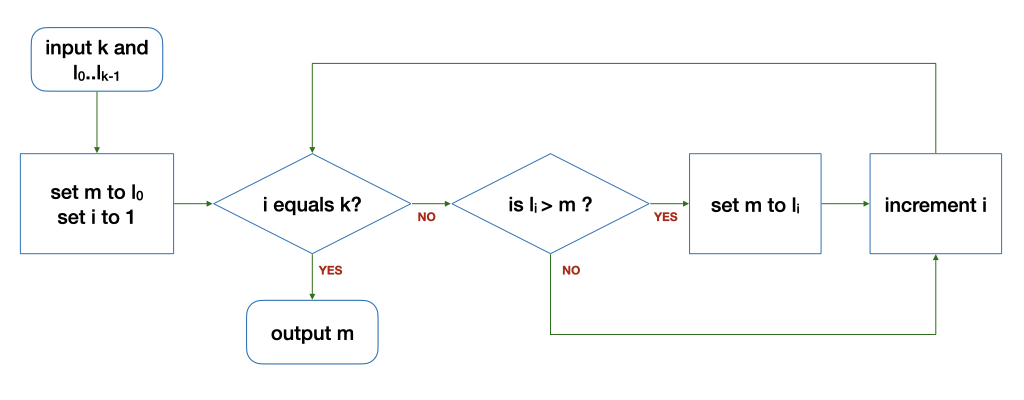class: middle, center # CS1010 ## Programming Methodology<br> ### (At Home Edition) --- class: middle, center # Lecture 1 ### 10 August 2020 Admin Matters<br> Unit 1: **What is a Program?**<br> Unit 2: **Computational Problems and Algorithms**<br> --- class: middle, center # Ooi Wei Tsang ### ooiwt@comp.nus.edu.sg ### Office Hour : Tuesday 4 - 5 PM --- class: middle, center # Daren Ler ### dler@comp.nus.edu.sg ### Office Hour : Friday 4 - 5 PM --- class: middle, center ## What will you learn? --- class: middle - Comfortable with reading and developing small programs to solve a given problem - Become proficient with C and associated programming tools (editors, debuggers) --- class: middle ## What do you need to know before CS1010? --- class: middle - Nothing about programming - Comfortable with using a computer - Comfortable with secondary school mathematics and notations --- class: middle,center ## Weekly Activities --- class: middle - **Monday**: Attend Lecture - **Monday-Thursday**: Review, Problem Set, and Self-Diagnostic Quiz - **Thursday**: Attend Lab; Assignment Released - **Thursday-Tuesday**: Solve the Assignment --- class: middle, center ## Most Learning Will Happen in the Lab --- - problem set and programming assignment will be discussed - 10 students per group - lead by a student tutor - online - starting Week 3 --- class: middle ### For lab registration issue, please contact - Ng Tzer Bin ([`dcsnt@nus.edu.sg`](mailto:dcsnt@nus.edu.sg)) - Sunimal Rathnayake ([`dcssrrm@nus.edu.sg`](mailto:dcssrrm@nus.edu.sg)) Daren and I have no access to the system and are powerless on this issue. --- class: middle ## "Catch-Up" Sessions - About every three weeks - Saturday 10 AM - 12 PM - Q&A format --- class: middle, center ## Important Resources --- class: middle, center ## Module Homepage [`https://nus-cs1010.github.io/2021-s1/`](https://nus-cs1010.github.io/2021-s1/) lecture notes<br> assignments<br> guides and manuals<br> readings<br> etc. --- class: middle, center ## Piazza [`https://piazza.com/class/kdgunoizhic105`](https://piazza.com/class/kdgunoizhic105) online forum<br> announcements<br> --- class: middle, center ## Github assignment submissions<br> assignment grading<br> --- class: middle, center ## Luminus quizzes<br> grades<br> survey<br> etc. --- class: middle, center # Assessments (or, how you will be graded) --- class:middle,center <canvas id="assessment"></canvas> --- class:middle,center .smaller[ Assessment | Date | Time :------------------|:-------------------------- |:------------- Midterm | Mon, 28 Sep| 12 - 2 PM Final | Tue, 24 Nov| 5 - 7 PM Practical Exam 1 | Sat, 3 Oct| 9 AM - 12 PM Practical Exam 2 | Sat, 7 Nov| 9 AM - 12 PM ] --- class:middle,center ## Open Book Exam ### Bring any materials you want ### Nothing to memorize --- class:middle ## Not "bell-curved" - Your grade is based solely on your marks - Not relative to others in the class. --- class: middle ## Plagiarism and Cheating - No mercy policy in dealing with cases - Not worth it to cheat/copy --- class: middle ## Things To Do - Read about other policies - Get your accounts ready --- class: center,middle # Words of Advice --- class: center,middle ## Work hard ## Work very very hard --- class: center,middle ## Expected workload is 10 hours/week But your mileage may vary --- class: center,middle ## Learning in NUS SoC is different from your experience --- class: center,middle ### Less rote learning ### More open-ended problems ### A lot more self-learning --- class: center,middle ### You cannot just "study" programming or problem solving ### You have to invest lots of time actually doing it --- class: center,middle ## Do not optimize for CAP and grades --- class: center,middle ## Optimize for skills, knowledge, and experience --- class: center,middle ## Invest time to master the tools (e.g., `bash`, `vim`, `git`, etc) --- class: center,middle ## Think long term gain, not just to get things done now --- class: center,middle ## Don't be shy interacting with your instructors and tutors --- class: center,middle ## This is a new start. ### Put down your baggage about where you are from and what you have done to get here. --- class: middle, center # Lecture 1 ### 10 August 2020 Admin Matters<br> Unit 1: **What is a Program?**<br> Unit 2: **Computational Problems and Algorithms**<br> --- class: middle,center ## What is a program? --- class: middle,center ### A sequence of step-by-step instructions given to computers to process data in order to perform a certain task. --- class: middle,center ### How CPU Executes a Program .fit[] .tiny[(A highly simplfied view)] --- ## Machine Code - Instructions that can be interpreted by a CPU - Different CPU architecture may use different instruction sets `1001010001011110100010101010101000101` --- ## Assembly Language - Use mnemonic to represent the instructions such as `incr`, `decr`, `store`, etc. in a more human-readable way. - Still difficult to write: operation that is conceptually simple still requires multiple instructions to be issued. --- ## Higher-Level Language - Allow programmers to express an operation closer to their intention - E.g., $x = x + y$ if $y < 0$ --- ## Higher-Level Languages - FORTRAN (first popular programming language from 1950s) - C (1972, still influential today) - Many many others --- ## Compilation A compiler _compiles_ a program written in high-level language to machine code. .fit[] --- class: middle,center # What you will learn? --- class: middle,center # How a C program behaves --- class: middle,center # How to write C programs --- class: middle,center ## Tools and techniques to write good and correct C programs --- class: middle,center ## How to use C to solve computational problems --- class: middle ### Learning to write a program that does what you want is the easy part. ### _Knowing what you want your program to do is the real challenge_! --- class: middle,center ## What is a computational problem? --- class: middle ## Computational problems are - problems that can be solved _step-by-step_ by a computer - have _well-defined_ inputs, outputs, and constraints --- class: middle,center # Is 1933091 prime? --- class: middle,center # Is there a route from a Point A to Point B? --- class: middle,center # Find a route from Point A to Point B. (search problem) --- class: middle,center ## How many different routes are there from Point A to Point B? (counting problem) --- class: middle,center # Find the shortest route from Point A to Point B. (optimization problem) --- class: middle,center # What is the meaning of life? --- class: middle,center # Do I look good in this outfit? --- class: middle ## Computational problem are - problems that can be solved _step-by-step_ by a computer - have _well-defined_ inputs, outputs, and constraints --- class: middle,center ### Find the maximum among these numbers ``` 5 9 8 1 3 2 ``` --- class: middle,center ### Find the maximum among these numbers .tiny[ ``` 12 20 11 20 14 2 24 36 43 16 27 6 11 7 10 15 38 10 22 7 16 26 32 30 11 9 30 6 20 6 27 19 26 10 27 6 19 34 5 9 3 22 10 4 13 1 10 22 43 36 39 29 41 12 13 25 17 8 30 31 29 38 2 42 7 45 24 33 9 40 34 29 37 2 26 17 19 34 6 7 34 22 21 41 38 5 15 13 9 1 42 39 5 29 38 4 22 29 41 10 26 32 30 26 16 16 18 22 32 34 14 10 5 17 25 16 19 6 31 16 3 13 8 42 41 0 13 30 44 1 41 14 5 39 40 38 6 37 38 9 . ``` ] --- class: middle ## How to Solve It? - Scan the integers one-by-one - Keep track of the "max so far" - When we are done scanning, the "max so far" will be the answer. --- class: middle ## Problem Formulation - Input: $L$ = $\langle l\_0,...,l\_{k-1\} \rangle$ - Output: $m$ - Constraint $m \in L$ and $m \ge l_i$ for all $i$. --- class: middle ## Scan One-By-One - $l_i$ : The number being scanned - $i = 0, 1, \ldots k-1$ --- class: middle ## "Maximum So Far" - $m$ : max so far - $m = l_0$ initially --- class: middle ## Keeping track - Compare $m$ with $l\_i$ - if $m < l\_i$, then update $m$ with the value of $l\_i$. --- class: middle ## Done scanning? - When we have scanned $l\_{k-1}$ --- class: middle ## The steps to solve a computational problem form the _algorithm_ --- class: middle ## Flowchart .fit[] --- class:center  .smaller.center[ $k$ | $i$ | $l\_i$ | $m$ :---|:----|--------|----- | | | | | | | | | | | | ] --- ## Variables - $i$, $m$, $k$ are _variables_ - They have corresponding location in the memory and hold a _value_ - You can _read_ a value from a variable - You can _write_ a value to a variable --- ## Assignment - We can assign the value of a variable to a constant (e.g., set $i$ to 1) - or to the value of another variable (e.g., set $m$ to $l_i$). --- ## Comparison - We can compare the values of two variables - E.g., $i$ equals $k$? $l\_i > m$? --- ## Arithmetic Operations - We can perform arithmetic operations (`+`, `-`, etc) - E.g., we set $i$ to $i + 1$ --- class: middle ### Does this algorithm always correctly find the maximum value? .fit[] --- class: middle ## Correctness - If an algorithm produces the correct output for one instance of input, it is not necessary correct - To be correct, it has to produce the correct output _for all possible_ inputs! --- class: middle ## How to check for correctness? - Carefully choose a set of test cases to try - Argue formally about the properties of the algorithms --- class: middle ## Homework - Post-Lecture Diagnostic Quiz (1%) - Due Thursday 10 AM of Week 3 - You can have three attempts - Problem Set 1.1 to 1.3 - Not graded. To be discussed Week 3.